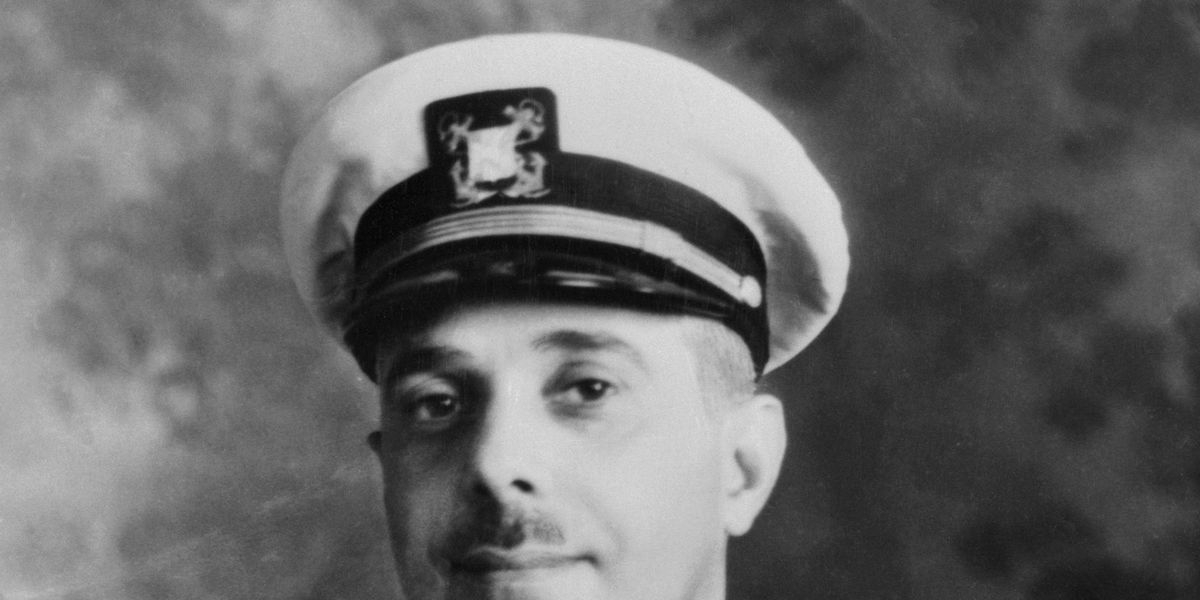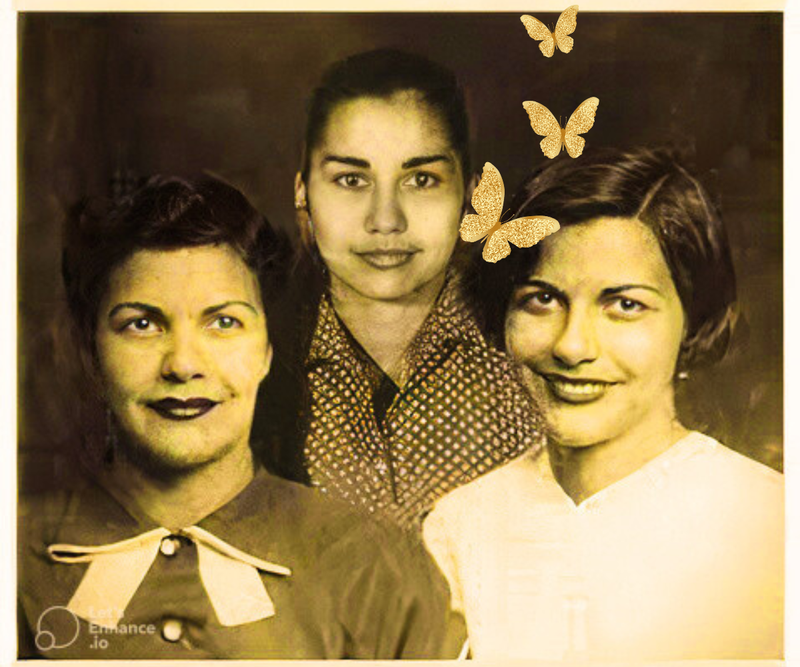On November 25, 1960, the Dominican Republic mourned as a jeep lay at the bottom of a ravine, containing the lifeless bodies of Minerva (34), Patria (36), and María Teresa (26) Mirabal. The Mirabel sisters were famously known as "Las Mariposas" or "The Butterflies." The driver, Rufino de la Cruz, did not survive either. Though it appeared to be a tragic accident, the Dominican people knew all too well that it was an order from Rafael Leónidas Trujillo, the President of the Dominican Republic from 1930 to 1961.
Upon learning of the Mariposas' death, family and friends were devastated, none more so than the fourth sister, Bélgica Adela Mirabal, known as Dedé. Unlike her activist sisters, Dedé had stayed away from politics due to her disapproving husband. However, despite not being an activist herself, Dedé supported her sisters by caring for their five nieces and nephews when they needed to meet with fellow activists. After the assassination of her sisters, Dedé transformed their childhood home into the Hermanas Mirabal Museum, preserving their story until she passed away at the age of 88.
"It was a terrible day because, although we knew it, we didn't think the crime would be carried out," reflects Dedé Mirabal in the documentary "Las Mariposas: The Mirabal Sisters”.
"If they kill me, I will raise my arms from the grave and be stronger," Minerva Mirabal responded in the face of constant threats.
Credits: Sonia Silvestre/Youtube
Undoubtedly, Minerva's words were not uttered in vain. The murder of the Mirabal sisters marked a turning point in the collective consciousness of the Dominican people. While not the initial heinous crime committed by the "Chief," President Trujillo's moniker, it was the one that made citizens and associates of the president realize that things had spun out of control. The fact that the three sisters were hanged and battered by the secret police, and their lifeless bodies left within the vehicle to stage an accident, signaled to everyone that security was now a fleeting notion. The women of families were no longer safe, and these women were daughters, sisters, wives, and mothers.
On May 30, 1961, six months after the assassination of the Mirabal sisters, the vehicle transporting Rafael Trujillo was intercepted, ironically culminating in the dictator's demise. Three vehicles, carrying seven of the fourteen conspirators who had orchestrated the assassination, were instrumental in this feat. The cars were strategically stationed along the coastal route to San Cristóbal. General Antonio Imbert steered one, and upon sighting the dictator's Bel Air, initiated the pursuit. The other three conspirators in the car opened fire with machine guns, injuring Trujillo in the shoulder. Despite his attempt to defend himself with a .38 caliber revolver, Imbert and his men managed to find shelter.
"He was on the ground, just a few meters from him," Imbert told The New York Times. "I aimed my revolver and fired twice. One bullet hit him in the chin. He fell backward, must have died immediately. He didn't move anymore."

Credit: Biography (Bio.)
After Trujillo's assassination, his son Ramfis assumed the presidency, decreeing the execution of all conspirators implicated in the plot against his father. Only Imbert and Luis Amiama Tió successfully evaded capture.
The Mirabal Sisters and the Persistence of Resistance

In defiance of their youth, President Trujillo relentlessly pursued Minerva, who rebuffed his advances. In 1949, "el Chivo," as Trujillo was also known, orchestrated a party near the sisters' residence, ensuring their attendance and declining the invitation was deemed an insult. During the event, the family remained on edge, particularly because rumors circulated that Trujillo used a drug to subdue women, as recounted by Dedé, Minerva's sister, to The New York Times.
Despite Minerva's efforts to avoid Trujillo, she was compelled to dance with him, marking a clear disagreement that culminated in a confrontation. The family decided to leave before the party concluded, an action interpreted as an insult. Consequently, military officials detained Minerva and her father. To secure their release, Minerva was required to meet Trujillo at a hotel, but she refused; eventually, she was set free but remained under surveillance.
Her courageous spirit remained unbroken, evolving over time into the leader of the resistance. Her sisters, Patria and María Teresa, joined her. Their activities against Trujillo's regime persisted, and upon marriage, their husbands joined the cause. These three sisters, first wives and later mothers, transformed into political activists under the watchful eye of the tyrant. In 1960, several activists, including the Mirabal sisters and their husbands, organized the Revolutionary Movement of June 14. The campaign failed, and "the chief" arrested the conspirators, including the three sisters. Shortly after, Trujillo released all political prisoners in an attempt to boost his popularity. However, the husbands of the sisters remained incarcerated. It was on November 25, 1960, on the way back from a prison visit, that their tragic assassination occurred.
The Legacy of the Butterflies
The tale of these three courageous women has been an enduring source of inspiration for future generations. Their exploits continue to be recounted in novels, poems, songs, films, television series, and documentaries. In 2007, the name of the Salcedo province was changed to Hermanas Mirabal. Schools, museums, and squares pay tribute to the memory of these three women.
The legacy of the butterflies has had a significant impact on Latin American culture. In 1981, during the first Latin American and Caribbean Feminist Encounter, it was proposed to commemorate every November 25 as the "International Day for the Elimination of Violence against Women" in their memory. In 2000, the United Nations declared this day as the "International Day for the Elimination of Violence against Women."
During this day, Minerva's words are remembered, emphasizing that the Mirabal sisters are now stronger than ever and symbolize all the women worldwide who continue to live in the shadow of violent acts. Although times has passed, and tyrants have new faces, according to data collected by the UN, an estimated 736 million women worldwide have been victims of physical or sexual violence at least once in their lives. This means that approximately one in every three women finds themselves in vulnerable situations.
The bravery of the Mirabal Sisters has indeed transcended time and borders, leaving an indelible legacy. Dedé Mirabal, despite not being an activist like her sisters, preserved their memory through the Casa Museo Hermanas Mirabal and cared for her six nephews. The Butterflies not only defied Trujillo in life, but their sacrifice inspires feminist movements and actions against gender-based violence. Every November 25, we recall Minerva's words: "If they kill me, I will raise my arms from the grave and be stronger." Their story is now part of the global consciousness, propelling the fight for a world where violence against women is only a dark memory of the past.


